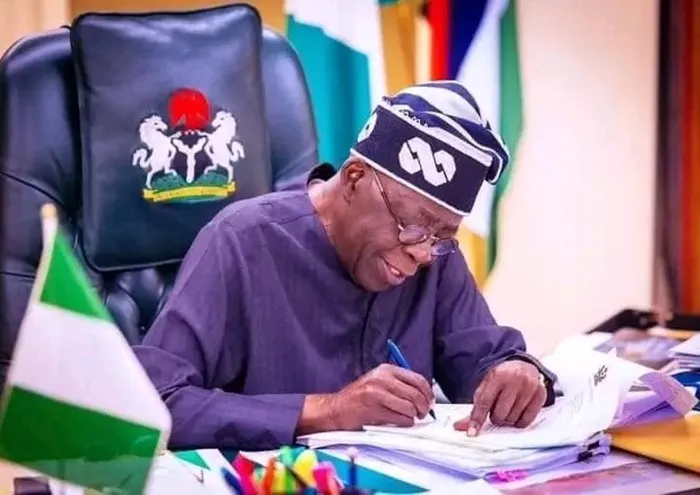President Bola Tinubu has formally signed into law Section 26 of the revised Harmonised Armed Forces Terms and Conditions of Service, which imposes strict prohibitions on members of the Armed Forces of Nigeria (AFN) regarding their personal conduct. The newly enacted provision bans military personnel from engaging in activities associated with the Lesbian, Gay, Bisexual, Transgender, Queer or Questioning, Intersex, Asexual, Two-Spirit (LGBTQIA2S+) community. The law also forbids cross-dressing, tattoos, body piercing, and any form of disorderly behavior, including public drunkenness.
The legislation, which was signed on December 16, 2024, outlines a series of conduct regulations aimed at maintaining a high standard of discipline and professionalism within Nigeria’s armed forces. Section 26 mandates that military personnel must refrain from participating in LGBTQIA2S+ activities, including homosexuality, lesbianism, and bestiality. It also explicitly prohibits cross-dressing, a practice that has gained increasing visibility in some social circles. These restrictions reflect the government’s stance on personal conduct and the need to uphold specific cultural and moral standards within the military institution.
The law extends beyond matters of sexual orientation and identity, encompassing issues of physical appearance and behavior. In addition to barring tattoos and body piercings, the provision prohibits disorderly conduct, which includes engaging in public brawls or actions that would bring shame or disgrace to the military. Officers are also prohibited from being under the influence of alcohol at any time, whether on or off duty, reinforcing the emphasis on maintaining discipline at all times.
The legislation has sparked significant debate in Nigeria, where LGBTQIA+ rights remain a contentious issue. Supporters of the law argue that it is necessary to maintain the discipline and integrity of the military, while critics contend that it infringes on personal freedoms and rights. The decision to include such provisions within military regulations is part of a broader trend in the country that has seen increasing efforts to impose restrictions on LGBTQIA+ activities and visibility.
Under the new law, military officers who violate these provisions could face disciplinary action, with the potential for dismissal from service. The legislation is expected to have a significant impact on the military’s culture, as it adds to existing regulations governing behavior, appearance, and moral conduct within the ranks.
This move is also likely to influence broader discussions surrounding the role of the military in shaping social values and personal freedoms in Nigeria. As the country grapples with questions of human rights, personal expression, and military discipline, the signing of this law is a key development in the ongoing dialogue about the rights of individuals versus the interests of the state and military institutions.
In the context of the global movement toward greater LGBTQIA+ rights and recognition, Nigeria’s decision to reinforce these restrictions could further isolate the country from international conversations on gender equality and human rights. While the law is a significant step for the Nigerian government in asserting its traditional values, it remains to be seen how it will affect the morale and cohesion of the military and how it will be received by both Nigerian citizens and the international community.
Related topics:

